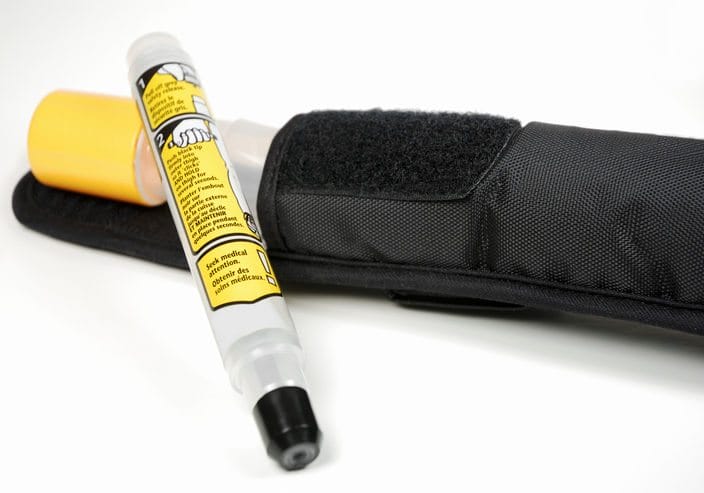 If allergy immunotherapy was as easy as brushing your teeth, would you be more likely to stick with the program?
If allergy immunotherapy was as easy as brushing your teeth, would you be more likely to stick with the program?
That’s the idea behind a propietary toothpaste called Allerdent, which the biopharmaceutical company Allovate Therapeutics is developing as a therapy to desensitize patients with pollen and grass allergies over a multi-year period. The treatment, called oral mucosal immunotherapy (or OMIT), is meant to fit easily into the patient’s daily routine.
Allovate has just published results of a small initial study, which shows favorable safety and effectiveness results – and, importantly, 80 percent patient compliance with the dental regimen.
Although standard allergen immunotherapy injections, commonly called allergy shots, have a high rate of success when patients stick with the treatment plan, Allovate CEO and founder Erick Berglund speaks of a “crisis of compliance” – since there is both resistance to the needle therapy and a big dropout rate.
Allergy shots “can be a really difficult sell for a lot of patients who would benefit from allergen immunotherapy,” Berglund told Allergic Living. “It’s such a pain. You need to go to the doctor once a week, and a typical course of treatment should really be between 3 and 5 years to get the full clinical effect.”
By contrast, Berglund says that “if you’re using toothpaste to deliver (allergen immunotherapy) you get to avoid all that, and the needle.”
While a novel delivery system, Allerdent does have needle-free competition that’s already approved and gaining ground. Sublingual immunotherapy (SLIT) drops for treating grass and ragweed allergies became available to allergists and patients in 2014. Allerdent borrows on that oral concept, and employs more of the mouth, where there is a high density of immune cells. A compounded extract of allergenic proteins, which can be tailored specifically to a patient, is added to the toothpaste base.
A small pilot study of the toothpaste, conducted by researchers at Weill Cornell Medicine in New York, involved 24 patients, who were split into two groups and followed either OMIT or SLIT therapy for 12 months. Immunologic changes, side effects and adherence were compared and, at least in this small “proof of concept” study, the toothpaste therapy had slightly better results.
More clinical trials are to be conducted – including a Brazilian study that starts soon for dust-mite desensitization via the toothpaste.
But what about the actual cleaning of your teeth as you brush? It turns out that Allerdent also functions as a normal toothpaste in that regard. “It’s minty, noted Danya Glabau, director of medical affairs for Allovate. “It has a combination of detergent and abrasives, as a regular toothpaste would.”





